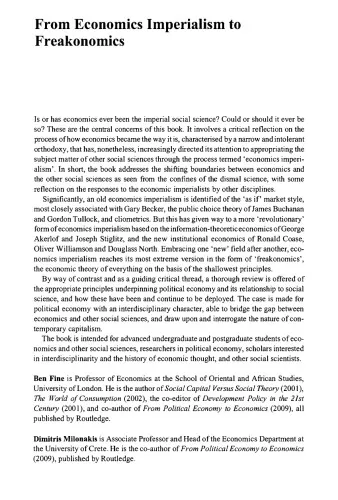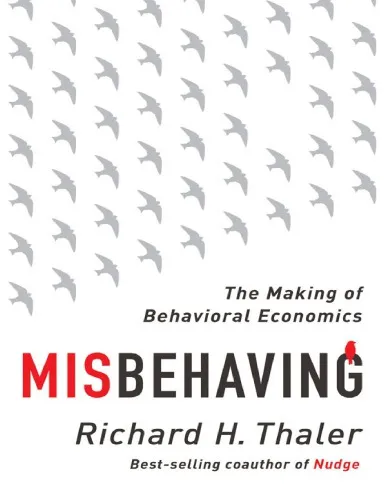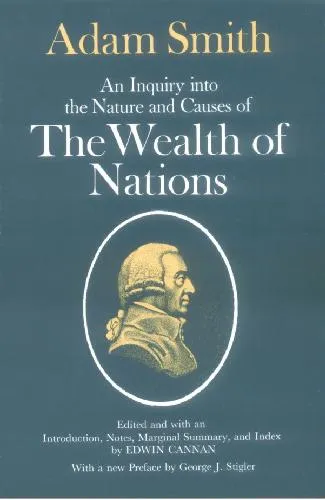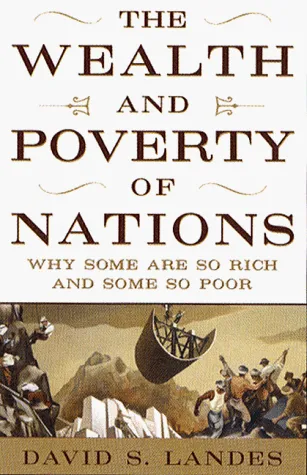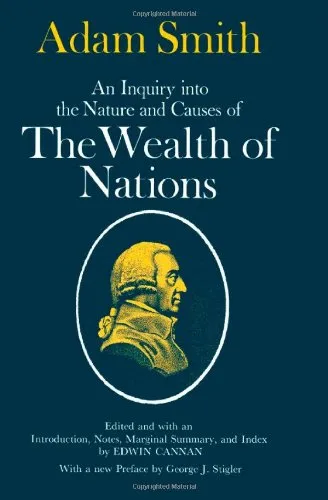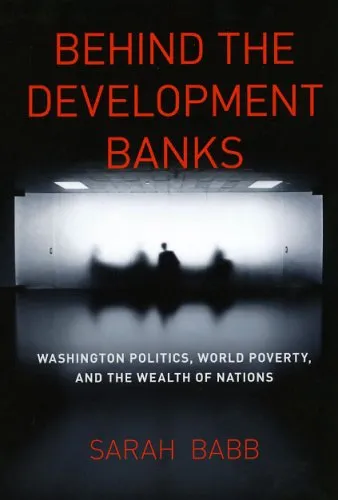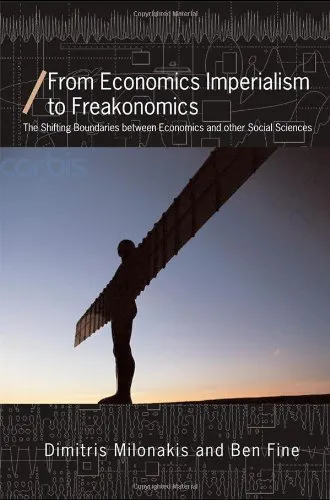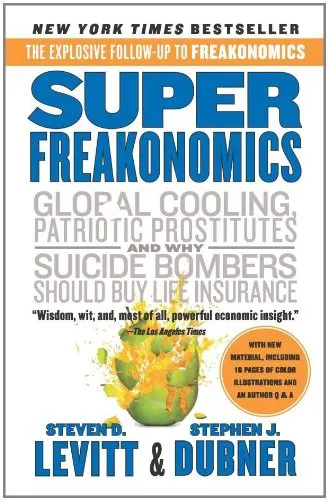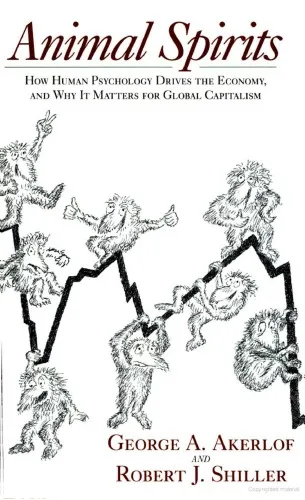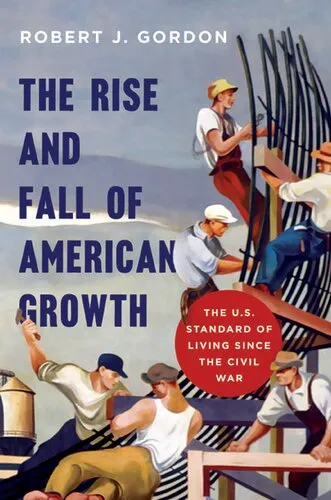From Economic Imperialism to Freakonomics: The Shifting Boundaries between Economics and other Social Sciences
4.0
Reviews from our users

You Can Ask your questions from this book's AI after Login
Each download or ask from book AI costs 2 points. To earn more free points, please visit the Points Guide Page and complete some valuable actions.Related Refrences:
In the ever-evolving landscape of social sciences, the boundaries that delineate economics from other fields are more fluid than ever. "From Economic Imperialism to Freakonomics: The Shifting Boundaries between Economics and other Social Sciences" explores this transformative journey. Co-authored by Ben Fine and Dimitris Milonakis, the book offers a comprehensive examination of the expanding reach of economic thought and its intricate interplay with disciplines like sociology, political science, anthropology, and others.
Detailed Summary of the Book
The book begins by exploring the concept of 'economic imperialism,' a term used to describe economics' encroachment into territories traditionally governed by other social sciences. It outlines the historical context and intellectual underpinnings that have facilitated this expansion. From the pioneering works of classical economists to the novel theories of new institutionalism, each chapter meticulously traces the evolution of economic thought.
As readers delve deeper, they encounter the embodiment of economic imperialism in policies and practices that prioritize market logic over social welfare considerations. Fine and Milonakis argue that this shift has profound repercussions for how we conceptualize human behavior and social phenomena.
The book also captures the zeitgeist of modern economic trends, notably the rise of Freakonomics—a term synonymous with unconventional approaches in economic analysis. By harnessing cross-disciplinary methods and anecdotal evidence, Freakonomics exemplifies the new, eclectic face of economics. Fine and Milonakis provide a critical lens through which readers can discern the implications of this trend, questioning both its merits and limitations.
Key Takeaways
The book offers several key takeaways:
- The fluidity of boundaries between economics and other social sciences enhances interdisciplinary research but can sometimes dilute the core values of each discipline.
- While economic imperialism has contributed to a broader understanding of social issues, it also risks oversimplifying complex social dynamics by adhering strictly to economic models.
- The rise of popular economics, as epitomized by Freakonomics, highlights both the appeal of simplified economic narratives and the necessity for critical engagement with such work.
Famous Quotes from the Book
"Economics may offer a powerful lens, but it remains just one view among many necessary to fully understand human societies."
"The imperialism of economics is as much a reflection of its strengths as it is of its weaknesses."
Why This Book Matters
This book matters because it addresses a pivotal question in contemporary social science: how should we balance the methodological rigor of economics with the nuanced understanding provided by other disciplines? Fine and Milonakis' work is vital for scholars and practitioners navigating the increasingly interdisciplinary waters of academia and policy-making.
Additionally, the book challenges readers to critically assess the impact of economic thinking on public policy and everyday life. By examining the shifting boundaries between economics and other fields, it prompts a reconsideration of where economics fits within the broader tapestry of social sciences and its role in shaping society's most pressing issues.
Free Direct Download
You Can Download this book after Login
Accessing books through legal platforms and public libraries not only supports the rights of authors and publishers but also contributes to the sustainability of reading culture. Before downloading, please take a moment to consider these options.
Find this book on other platforms:
WorldCat helps you find books in libraries worldwide.
See ratings, reviews, and discussions on Goodreads.
Find and buy rare or used books on AbeBooks.
1305
بازدید4.0
امتیاز0
نظر98%
رضایتReviews:
4.0
Based on 0 users review
Questions & Answers
Ask questions about this book or help others by answering
No questions yet. Be the first to ask!
